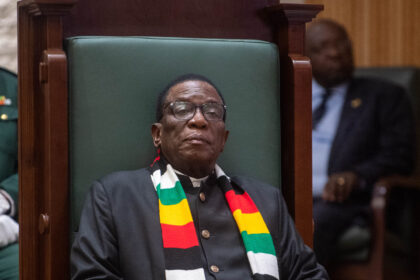Parliament has limited time to pass Electoral Amendment Bill
Cabinet approved the principles of the proposed Electoral Amendment Bill as part of electoral reforms and realigning subsidiary laws with the constitution.
The proposed amendments will seek among other things incorporate a 30% women quota as well as the youth quota, setting timeframes within which Parliamentary and local authority candidates can withdraw their candidature.
It will also seek to amend the definition of proof of residents, among other things.
However, the Bill is yet to be gazetted and this might take time considering that the Attorney General’s office has always complained about being short-staffed.
Currently, they are sitting on the Devolution Bill which is supposed to operationalise the Provincial Councils.
Zimbabwe is expected to hold general elections between July and August 2023 which leaves very little time for both Parliament and the public to do due diligence on the Electoral Amendment Bill.
Parliament has already started working on the 2023 national budget with the relevant committees have gone around the country to gather the views of the citizens.
Soon, they will be going for a pre-budget seminar, meaning there is little to no time this year to work on the bill as the budget will be the priority before they break for the December holiday.
There is little time to deal with the bill
Besides the budget, there is also the urgent issue of the delimitation report that is supposed to go to the same Parliament.
Delimitation results if they are to be used for the 2023 general elections, the exercise must be concluded at least six months before the election day.
Zimbabwe Election Support Network (ZESN) told journalists during a Media Elections Academy on Electoral Processes that the delimitation exercise must be completed between 31 December 2022 and mid-January 2023.
Trying to meet the delimitation deadline will likely preoccupy Parliament after the budget process, leaving little time for the Electoral Amendment Bill.
This will likely cast a shadow of doubt on the Electoral Amendment Bill coming into force before the polls are proclaimed.
This was confirmed by Veritas Zimbabwe in its Election Watch series, adding that delays in enacting the law will also leave little room for political parties to comply with the requirements.
‘’Section 157(5) of the Constitution states that after an election has been called, no change to the electoral law will have effect for the purposes of that election.
‘’Hence if the Bill is to apply to the 2023 general election it will have to be passed by Parliament and promulgated as an Act before the President publishes a proclamation calling the election in terms of section 38 of the Electoral Act – and he will have to do that by mid-July 2023 at the latest.
‘’Ideally, the Bill should be enacted well before that date so as to give Parliament a thorough opportunity to debate it and propose amendments, and to give political parties and candidates enough time to comply with the new requirements laid down by the Bill,’’ Veritas said.
Parliament has limited time to pass Electoral Amendment Bill



